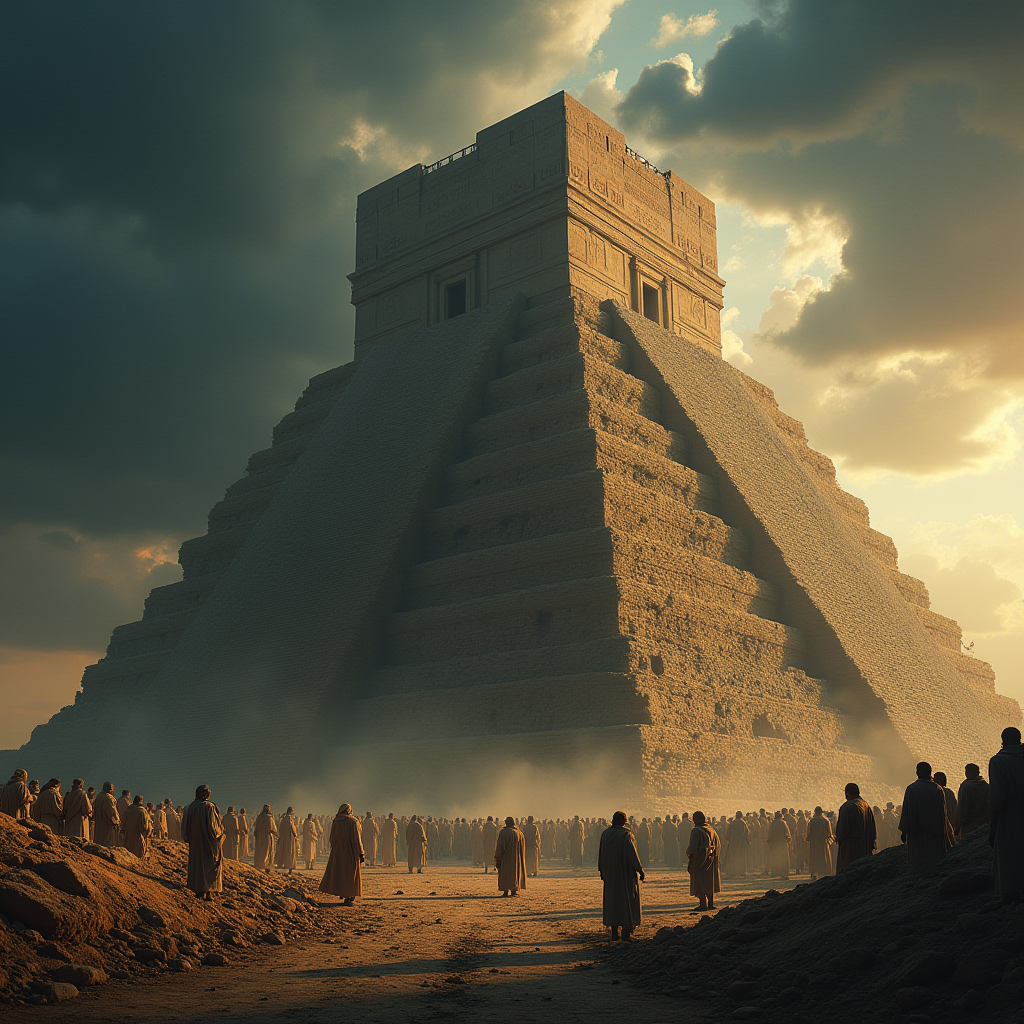
A depiction of the Tower of Babel, where God confused languages, as debated in the podcast.
Tower of Babel: Biblical Truth or Myth?
On the Ask A Christian Podcast, I debated guest Michael on the Tower of Babel history. Is Genesis 11’s account of a unified language shattered by divine intervention fact or fiction? Michael called it nonsense, citing gradual language evolution. I defended its biblical plausibility. Therefore, let’s unpack this clash, exploring Scripture and reason. Check Genesis 11 on BibleGateway. Let’s dive in!
Tower of Babel History in Genesis 11
Genesis 11 paints a vivid scene: humanity, sharing one language, builds a tower to “make a name for themselves.” God intervenes, confuses their speech, and scatters them. Michael argued that languages evolve slowly, not instantly. He claimed the Bible’s “whole earth” language ignores global diversity. However, I noted that “whole earth” likely means the known regional world, not every continent. For more biblical insights, visit our Theology Unpacked section.
Moreover, if God exists, a sudden language shift is possible. This doesn’t negate natural linguistic evolution elsewhere. The Tower of Babel history, thus, fits a specific divine act, not a universal language origin story.
Contextualizing Biblical History
I tied the Tower of Babel history to Noah’s flood. Post-flood, Noah’s descendants likely shared a single language. God’s intervention at Babel diversified their speech. Michael’s skepticism assumes no divine action, but if God is real, the event is plausible. Meanwhile, the Bible’s regional focus aligns with ancient Near Eastern geography, not modern global knowledge.

Dive deeper into defending your faith with Nate’s book on apologetics and thoughtful religious discussion.
Tower of Babel History: Literal or Symbolic?
Michael dismissed the story as myth, citing linguistic science. I argued that rejecting Tower of Babel history assumes God’s absence. A contextual reading allows divine intervention without contradicting natural processes elsewhere. Consequently, the debate revealed a deeper divide: literal versus symbolic interpretation. Scripture invites us to see God’s hand in history, not just allegory.
Lessons from Babel’s Scattering
Beyond historicity, the Tower of Babel history warns against human pride. Humanity sought to rival God, building a monument to self-glory. God’s response humbled them, scattering their unity. Today, we face similar temptations—chasing fame over faith. The story, whether literal or symbolic, calls us to trust God’s plan. Its theological weight endures, grounding Tower of Babel history in divine truth. But for the record, it literally happened.
The Tower of Babel history sparks debate, yet Scripture’s account invites trust in God’s sovereignty. Is it myth or divine act? For more biblical insights and resources, visit our Linktree for general resources. Let’s keep wrestling with truth!
Share this: #TowerOfBabelHistory #BiblicalHistory #AskAChristian

Good feel all round.
You’ve done a ripper job with this! Thanks heaps.
Solid gold content! Really brightened my day.
Spot on the money! Thanks for the awesome content.